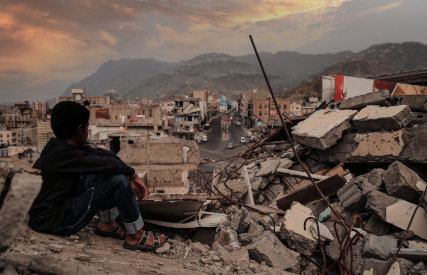International crimes, such as war crimes and crimes against humanity, are extremely difficult to prosecute. Civil society organisations have expressed the need for clearer guidance on how to document international crimes and human rights violations, to ensure that strong cases can be presented in courts such as the International Criminal Court (ICC).
On 21 September 2022, a joint press release of Eurojust and the Office of the Prosecutor at the ICC detailed the release of the Guidelines for Civil Society Organisations on documentation of International Crimes and Human Rights Violations (“the guidelines”).
This article examines the role of civil society organisations, how the guidelines will help them to document international crimes, and the impact this will have on bringing international criminals to justice.
What is a civil society organisation (CSO)?
According to the United Nations, a civil society organisation (CSO) is “any non-profit, voluntary citizens’ group which is organized on a local, national or international level.”
CSOs perform a variety of services and humanitarian functions including:
- Bringing citizens’ concerns to governments.
- Monitoring policies.
- Encouraging political participation at the community level.
- Providing analysis and expertise.
- Serving as early warning mechanisms.
- Helping to monitor and implement international agreements.
- Focusing world attention on important issues facing humanity.
Mr Karim A.A. Khan KC, Prosecutor of the International Criminal Court, said “Civil society organisations are critical partners in our common goal to achieve accountability for international crimes.”
How will the guidelines help to combat international crimes?
The guidelines have been drawn up building on the expertise of the Office of the Prosecutor at the ICC, Eurojust, the Genocide Network, civil society organisations, national prosecutors and international partners.
The information contained in the guidelines will empower and support civil society organisations that seek to collect and preserve information to contribute to investigations and prosecutions at the national level or before the ICC. The guidelines contain a checklist setting out the core principles and practical steps to follow.
This will help to ensure that those committing serious international crimes such as war crimes do not evade punishment for their actions.
Eurojust President Mr Ladislav Hamran said “With the war in Ukraine, peace and justice are under the most severe pressure, and accountability for core international crimes and violations of human rights is more than ever essential for international criminal justice. These guidelines will be a key building block in efforts of authorities and civil society organisations to collect and preserve information and evidence that may become admissible in court. With this joint effort of Eurojust and the Office of the Prosecutor at the ICC we provide practical assistance to get justice done.”
Protecting the vulnerable
The ICC Prosecutor also highlighted the importance of protecting the most vulnerable when engaging in documentation efforts, particularly in situations involving crimes against children or victims of sexual abuse.
The guidelines will serve as a basis for protecting the vulnerable in such situations. For example, the guidelines emphasise the importance of ensuring persons are not interviewed several times. This can not only affect their safety and well-being, but also compromise their willingness to contribute to accountability processes by sharing their testimonies.
The guidelines also contain advice on key areas including:
- Approaching vulnerable persons.
- Taking a person’s account, photographs and videos.
- Dealing with documents, digital information and physical items.
- Storing, safeguarding and analysing collected information.
Key takeaways
With international developments such as the war in Ukraine, it is more important than ever to ensure that international crimes and human rights violations are sufficiently documented to support investigations and prosecutions. Civil society organisations play a key role in documenting such crimes, and the recently released guidelines will greatly facilitate this documentation process, increasing the chances that international criminals will be brought to justice.



